A lightly edited version of Justice Minister Mark Golding’s statement last Thursday on reforms to the laws relating to ganja.
On Monday, June 2, Cabinet approved certain changes to the law relating to ganja. These relate to the possession of small quantities for personal use, the smoking of ganja in private places and the use of ganja for medical/medicinal purposes.
Approval has been given also to a proposal for the decriminalisation of the use of ganja for religious purposes. These changes have been under consideration for some time, but the necessary internal consultations and consequential refinements had to be undertaken before submission in April for Cabinet’s consideration.
The changes to the law contemplated are not novel. The decriminalisation of ganja in Jamaica has been the subject of considerable study and recommendations over the years. A 1977 Joint Select Committee of Parliament which reviewed ganja use and legislation, stopped short of recommending its legalisation, but recommended that there was a substantial case for decriminalisation for personal/private use, with no penalty for quantities up to two ounces. It also recommended that the prescription of marijuana for medicinal use should be lawful.
Over 20 years later, the National Commission on Ganja, referred to as the Chevannes Commission, conducted an all-encompassing review of the subject and submitted its final report in August 2001, recommending, inter alia, the decriminalisation of the private use of small quantities of ganja by adults, the decriminalisation of ganja for use as a sacrament for religious purposes, the implementation of a public education to discourage use by young persons mainly, and the establishment of a Cannabis Research Agency, in collaboration with other countries, to co-ordinate research into all aspects of ganja. The Chevannes Report was reviewed and its recommendations endorsed by a 2003 Joint Select Committee of Parliament.
The proposed changes to the law are consistent with the positions adopted by several countries. In Canada and some 20 states in the United States of America, marijuana has been decriminalised for medical purposes. In countries such as Australia, Argentina, The Netherlands, Portugal, India, Ecuador and, most recently, Uruguay, and the US states of Colorado and Washington, the use of small amounts of marijuana by adults in private is permitted.
In considering any change to the law relating to ganja, regard must be had to obligations under the relevant international agreements to which Jamaica is signatory. The principal international agreements are the 1961 UN Single Convention on Narcotic Drug and the 1972 Protocol Amending the Single Convention, the 1971 UN Convention on Psychotropic Substances, and the 1988 UN Convention Against Illicit Traffic in Narcotic Drugs and Psychotropic Substances.
The international agreements to which Jamaica is party place certain limitations on the changes that can be made to our domestic law without violating our international obligations. For example, the Single Convention as amended, limits the production, manufacture, export, import, distribution of, trade in, use and possession of drugs except for medical and scientific purposes.
«Drug», as defined, includes cannabis, cannabis resin, extracts and tinctures of cannabis. The prohibitions imposed by that Convention, therefore, apply to ganja. There is a view that the strictures imposed by these international drug-related agreements need to be reviewed by state parties in light of current developments and trends.
This is an important item on the agenda of Caricom. But until the stipulated requirements are reviewed and adjustments made, we are obliged to make such changes that are permissible within the present scheme of international obligations.
In this regard, it is important to note that the relevant conventions recognise the supremacy of the constitutions of member states — the obligation to control, restrict and impose sanctions in respect of prohibited activities relating to drugs is expressly stated to be subject to the constitutional principles of member states.
This, we submit, provides some flexibility in the treatment of the use and possession of ganja in our local context. The rights guaranteed under the Charter of Rights and, in particular, the right to privacy and freedom of religion, are or of special significance.
Of relevance also to the proposed decriminalisation of ganja for medicinal and research purposes is the fact that medical and scientific purposes are expressly recognised exceptions under the relevant Conventions.
The Proposed Changes to the law
Cabinet has approved the following proposed changes:
a) The Dangerous Drugs Act is to be amended to make possession of small quantities of ganja for personal use a ticketable infraction:
1) Possession of two ounces (0.057kg) or less will become a non-arrestable, ticketable infraction attracting a monetary penalty which shall be payable outside the court system and which does not give rise to a criminal record.
2) Failure to pay the ticket within a specified time (30 days) will be a minor offence punishable in the Petty Sessions Court by an order for community service.
b) Additionally, where the person found in possession of ganja in the quantities indicated above is a minor, or an adult who appears to be dependent on ganja, the police officer (in addition to giving the person a ticket) should refer him/her to the National Council on Drug Abuse. This is similar to the treatment afforded under the Drug Court (Treatment and Rehabilitation of Offenders) Act, to persons who are charged with minor offences under the Dangerous Drugs Act, including possession of eight ounces or less of ganja and smoking ganja.
The procedure under the Drug Court (Treatment and Rehabilitation of Offenders) Act requires that the person be charged with an offence and be brought before the court and the court will refer the person to the drug treatment programme. It is proposed that in the case of a ticketable offence, as proposed, the referral will be made by the police. In our internal consultations it was recognised that we will need to design a procedure to ensure that a person who is referred for drug treatment follows through with this, and we intend to work with the Ministry of Health in this area.
c) The smoking of ganja should not be permitted in places where the smoking of tobacco is not allowed. Smoking ganja should be absorbed into the general non-smoking regime, with the same penalty structure, except that the smoking of ganja will be permitted only in private places, meaning that (i) the special provisions for designated smoking areas or zones within certain public premises that are being introduced into the Tobacco Control Regulations will not apply to the smoking of ganja, and (ii) special provisions are to be made for the smoking of ganja by Rastafarians in places designated for their religious worship. Violations should be ticketable, and payable outside the court system. Non-payment should be punishable by an order for community service.
d) Given (b) above, the Dangerous Drugs Act is to be amended to remove the smoking of ganja as an offence under that Act, and also to remove as offences the possession of pipes or other utensils for use in connection with the smoking or other use of ganja.
e) Possession of ganja for use for religious purposes, or for therapeutic purposes as prescribed by a registered medical practitioner, or for purposes of scientific research conducted by an accredited tertiary institution or otherwise approved by the Scientific Research Council, is to be decriminalised.
The Dangerous Drugs Act is to be amended to provide that these are exceptions to the unlawful possession of ganja. The evidential burden of satisfying the court that the ganja is possessed for purposes falling within one of these exceptions should rest on the person relying on that as a defence.
Rationale for the proposed reform
I wish to stress that the proposed changes to the law are not intended to promote or give a stamp of approval to the use of ganja for recreational purposes. The objective is to provide a more enlightened approach to dealing with possession of small quantities and smoking, while still meeting the ends of justice.
The proposed changes represent an approach which will enure to the benefit of the persons concerned, the society as a whole, and reduce the burdens on the court system.
The current approach to the criminalisation of ganja places a significant burden on Jamaica’s overstretched criminal justice system and has contributed to the backlog in the Resident Magistrate’s Courts. The treatment of minor drug offences as ticketable offences should ease the pressure on the court system.
Perhaps most importantly, the criminalisation of possession of a small quantity of ganja and of smoking ganja has caused significant hardships in Jamaica, particularly among young men. A conviction for possession or use of ganja results in a criminal record, which often precludes the offender from engaging certain employment, impacts his ability to get visas to travel overseas, and generally limits his life prospects. This is a serious human rights issue, supporting the cry for reform to our laws in this area.
In this regard, I am also pleased to announce that I expect a Bill to amend the Criminal Records (Rehabilitation of Offenders) Act shortly to come to Parliament, that will provide for the expungement of existing criminal records for possession of small quantities of, or smoking, ganja upon application to the Criminal Records Board, without having to wait for the expiration of any pre-expungement period.
That Bill will also make consequential amendments to provide that, going forward, these minor ganja-related offences will not result in a criminal record. The Legislation Committee reviewed that Bill yesterday, and I anticipate that it will be brought to Parliament before it breaks for the Summer.
In proposing these changes to the law, this Administration is not unmindful of the health risks associated with smoking ganja and the implications for the public health systems and services. Indeed, this was a point of concern which was raised by the Ministry of Health in the consultations on the proposed changes. The health risks and wider implications identified are not disputed.
However, the reality is that the imposition of harsh penalties has not proved to be an effective deterrent to smoking ganja, and ganja use is already prevalent in our society (including among adolescents). In fact, prohibition serves to enhance the mystique of the forbidden activity, and thereby encourages adolescent use.
On the other hand, a criminal conviction and the attendant significant adverse long-term consequences are not justifiable for what is a relatively minor offence.
In determining an appropriate legal response to the concerns surrounding the use of ganja, I believe it is important that regard be had not only to the individual and public health considerations, but also to the human rights implications. In this regard, the issue is whether the law, and any infringement of human rights resulting from its application, are demonstrably justified in a free and democratic society, in keeping with the threshold stipulated in the Charter of Rights which is enshrined in our constitution.
The challenge is to find an approach which provides a balance between the health care and the human rights concerns. The proposed reform seeks to achieve this. The proposed approach has the support of the executive director of the Council on Drug Abuse.
An important aspect of the proposed ganja reform will be the implementation of a public education campaign to discourage ganja use by minors and other vulnerable persons.
It is proposed that the licence fees payable will provide a source of funding for this purpose, but it is not intended that the launch of this campaign should await the advent of a licensing regime for the economic and medical benefits of ganja. It is proposed that the Ministry of Justice partner with other interested ministries, to develop and implement the public education campaign.
Decriminalisation of ganja for religious purposes
Rastafarianism is a religion with roots in Jamaica which go back to the first half of the 20th Century. It has received judicial recognition (in the 1971 case of R v Hines and King, the Court of Appeal of Jamaica upheld the right of the accused man to decline to swear on the Bible and instead to swear by «Almighty God, King Rastafari»), and more recently, legislative recognition with the recent passage of a Private Bill for the incorporation of the Church of Haile Selassie I.
Rastafarians generally regard ganja as a sacred «herb», the smoking of which is an integral part of their worship experience. Over the years there have been repeated calls from members of the Rastafarian community and others advocating the decriminalisation of ganja for use for religious purposes. This was one of the specific recommendations of the Chevannes Commission.
The argument raised in support is that the criminalisation of ganja for religious purposes is a breach of the fundamental right to freedom of religion which is protected by the Jamaican Constitution.
It has to be acknowledged that to date, court challenges to legislation criminalising ganja brought by Rastafarians in Jamaica, South Africa and the UK, have failed. However, it is felt that today the courts would be more favourably disposed to a challenge on the grounds of human rights or constitutional rights violations, in light of the greater awareness of the medicinal and other uses of ganja, and the liberalisation of the relevant law in many countries.
In the particular case of Jamaica, the saving provision for pre-independence laws that was formerly in section 26(8) of the Constitution was a critical factor in the defeat of the challenge (Dennis Forsythe v the DPP and the AG). The repeal of that savings provision by the legislation establishing the Charter of Rights means that breaches of rights guaranteed by the Charter of Rights now have to be demonstrably justified in a free and democratic society.
We consider that Jamaica’s Parliament, as the promulgator of the Charter of Rights, is in a position to express its conviction that religious use of ganja ought not to be criminalised, given Jamaica’s history and prevailing socio-cultural and economic environment.
Decriminalisation for medicinal purposes
It is becoming widely accepted across the world that ganja has therapeutic use. Medical and scientific research on ganja has shown it to be effective in reducing nausea and vomiting, stimulating appetite, promoting weight gain and the treatment of glaucoma. Ganja has been used to treat spinal cord injuries and multiple sclerosis, relief of migraine headaches, depression, seizures, insomnia and chronic pain.
Persons who suffer from the effects of cancer, HIV/AIDS and other diseases, have found significant relief of various symptoms from the use of marijuana, though in many cases they are forced to do so illegally.
Our own Jamaican scientists, Professor Manley West and Dr Albert Lockhart developed the drug Canasol from the ganja plant for the treatment of glaucoma. Dr Henry Lowe has also long been involved in research in this area, and recently launched a company to pursue further research and related commercial applications.
The University of the West Indies recently signed Memoranda of Understanding with Strains of Hope, the Colorado-based entity which has developed therapeutic hemp applications (recently publicised by CNN in Dr Sanjay Gupta’s documentaries entitled Weed), and with Timeless Herbal Care in partnership with Hebrew University of Israel and strategic Canadian stakeholders.
It is not only wrong but also foolhardy to continue with a law that makes it illegal to possess ganja and its derivatives for medicinal purposes.
Additional reforms — Medical Ganja & Industrial Hemp
The reform measures approved by Cabinet have been primarily driven by the human rights and constitutional considerations prevailing in the Jamaican environment. However, Jamaica also needs to position itself to be an important player as the world increasingly recognises and calls for the benefits of medical marijuana and industrial hemp.
To this end, a separate exercise is underway to develop a legal framework which will allow the emergence of medical ganja and industrial hemp industries in Jamaica. An inter-ministerial sub-committee of Cabinet has been established for this purpose, under my chairmanship. The regulatory arrangements to support these industries will need to be informed by our international obligations (in particular any specific control regime stipulated in the relevant conventions) as well as our own social realities.
The objective is to secure the economic and medical benefits of ganja while minimising the risk of abuse. A robust regulatory framework can provide the platform for the development of formalised and tax-paying medical ganja and industrial hemp industries, from which Jamaica stands to derive significant economic benefits.
Accordingly, it is envisaged that the arrangements will provide for the use of a portion of the licensing revenues from these industries to fund a public education programme to discourage ganja use by minors and other vulnerable persons, to enhance the funding support for programmes dealing with ganja abuse/addition, and to fund research into the medicinal and other scientific and industrial uses of ganja.
Conclusion
The reform of the laws in Jamaica relating to the use of ganja for certain purposes has been the subject of deliberation and recommendations by state-appointed and parliamentary committees, concerned groups and individuals. In recent times, many countries have reformed their laws relating to ganja in response to new information as to its uses, including its medicinal properties.
Cabinet has taken the decision that there is sufficient information and expertise to provide a foundation on which to act, having regard, of course, to our obligations under international conventions, but also to local considerations and global developments.
I must close by emphasising that what I have advised the public of today are a set of reform proposals that have been approved by Cabinet. The law remains unchanged at this time. Therefore, until legislation to amend the law has gone through the development process and been introduced into and approved by Parliament and enacted into law, our citizens are obliged to abide by the rule of law as it stands today.
FUENTE: http://www.jamaicaobserver.com/columns/Ganja-laws–The-Government-s-case-for-reform_16895074

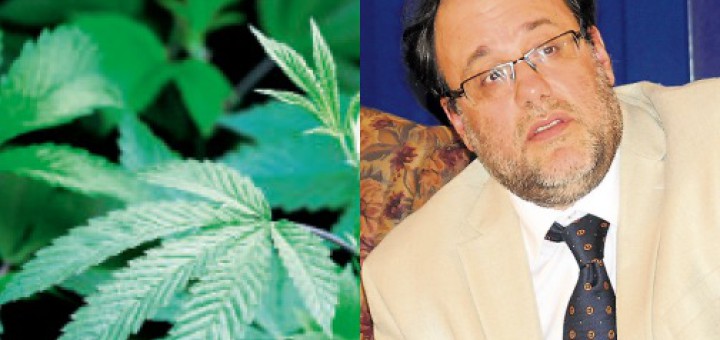




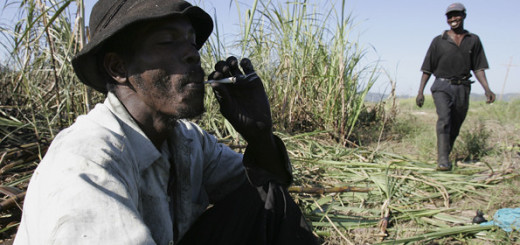

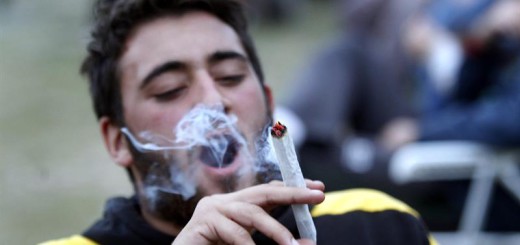
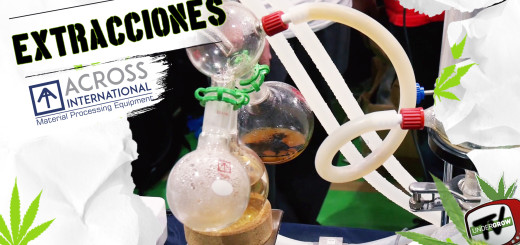


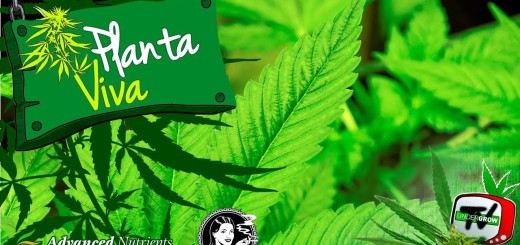
Comentarios recientes